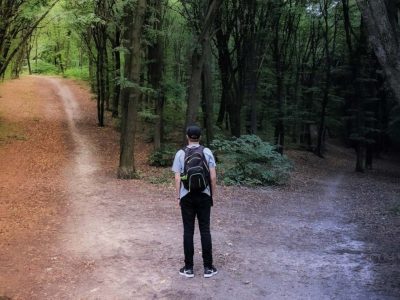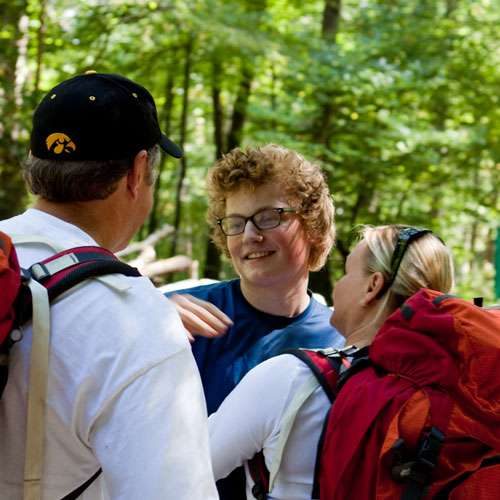The wonderful part of therapy is that it is not a “one size fits all” practice. And while the word therapy often conjures images of couches or circles of people sitting in meeting rooms, there are actually many ways for teens to engage in therapeutic activities. Therapy doesn’t always have to involve a therapist and an individual sitting together discussing the person’s personal issues.
Have you ever noticed that your teen is more talkative when you’re going for a drive or on a walk? Many teens feel pressured in a formal, traditional therapeutic environment. This pressure can make them uncomfortable or unwilling to share their thoughts and struggles. Teens can greatly benefit from different methods of therapy and therapeutic activities. They are entering an age when their peer relationships begin to take precedence over their parental relationships, and therapeutic activities with their peers can have a profound and lasting effect. Therapeutic activities for teens can help teens come out of their shell, have fun, and learn from their experiences.
Therapeutic Activities for Teens
Wilderness therapy is uniquely designed to address students’ different therapeutic needs and interests. In nature, students are automatically removed from distractions and negative patterns. They are given opportunities to have new experiences and build new skills through therapeutic activities. Through these activities, students gain healthy coping skills that they can apply to their daily lives. Adventure programming also provides the opportunity to address some of the underlying causes of behavioral problems outside of traditional talk therapy sessions. Any difficult emotions that arise during these activities can be explored by the student and trained staff in the moment, providing the opportunity to identify how the stressor is affecting them and grow from the experience. By nature, teens crave social interactions, large amounts of activity, and feeling successful. These therapeutic activities for teens can help teens meet all of those wants:
Equine programming: When students arrive at a wilderness program, they may feel uncertain as they find themselves in a new environment with new people. Many students struggle with anxiety or social skills and the idea of meeting new people can be intimidating. Equine programming is a way for students to begin to practice socializing in a low stakes situation. Horses respond to their handler’s energy. If students are harsh, the horse will shy away. If a student is too passive, the horse will not listen to commands. Working with horses teaches students to effectively communicate. As they continue to build a relationship with a horse, the student builds confidence. Every successful interaction is a rewarding part of building a bond. Taking care of horses can help teens struggling with anxiety, trauma, depression, and ADHD.
Camping: Backcountry camping is a unique way for teens to build confidence and self reliance. One of the most important skills our students learn during their expeditions is bow drilling. Bow drilling is the practice of starting a fire without a lighter or mechanical heat source. They learn to build their own bow drill and create the friction needed to light a spark. This sense of pride they gain as they work towards mastery of this new skill can also help students struggling with their self esteem. Being out in nature has its own therapeutic benefits. Teens are required to learn other survival skills such as building a campsite and cooking without modern appliances. Even the practice of setting up and breaking down their campsite is an opportunity to take pride in the work and improve their sense of self sufficiency.
Rock climbing: Rock climbing is a healthy way for teens to push their boundaries while still being in a controlled environment. We know that many adolescents exhibit risk taking behavior during the teens years and turn to destructive behaviors such as experiencing with alcohol or drugs. Rock climbing taps into that need to take a risk, but keeps students in an environment where they are led by trained professionals with all the proper safety measures in place. Rock climbing teaches creative problem solving and resiliency. Most of the time, students will not complete a climb on their first attempt. Rock climbing forces climbers to pay attention to all the details. Is there a better place they can put their hand next time? Is there another route that might be more effective? By trying a climbing route again and again, the students naturally learn to strategize and try again, even if they fail. Rock climbing teaches students not to see a fall as a failure, but rather an opportunity to learn something new about the route.
Art: Being creative can help students expressive themselves in ways they may not feel comfortable within a traditional therapeutic environment. Not all teens communicate effectively through words. They may not have the vocabulary they need to describe where they’re struggling or how they are feeling. For these teens, art projects such as painting, collage, or even creating with objects from nature can relieve stress and help them freely express themselves. Art can help teens look at their struggles from a different perspective. They don’t have to label thoughts or feelings as “good” or “bad”, but rather they can create an experience around those feelings. This could look like experimenting with colors or free drawing to see what themes emerge.
Canoeing: One of the benefits of paddling in a canoe is that you are not doing it alone. Most paddlers will have one person in the front to guide and one person in the back to steer. Canoeing encourages teamwork and communication. For teens who struggle to make healthy friendships, canoeing can help them practice communicating their needs. For example, if the paddler in front sees an obstacle down the river, they need to be able to tell the paddler in the back what they see and which way to steer. Paddlers in the back need to communicate when they need help navigating the canoe. Each pairing of students develops a routine that allows them to work together and learn techniques to deal with the inevitable conflict along the way. For a successful paddling trip, both students must work as a team to reach their common goal.
Yoga: Yoga is not just a physical practice, but also a mindfulness practice as well. Yoga encourages students to slow down and pay attention. They pay attention to their breath. They pay attention to what thoughts are coming up during the practice, and learn to acknowledge those thoughts without fixating on them. They pay attention to each movement of their body, from the way their feet connect with the ground to the way their ribcage expands as they breathe. Mindfulness is the practice of staying in the moment, and is something students can practice even after their yoga session ends. Teens who struggle with self regulation and impulse control can use mindfulness as a healthy coping skill. As they begin to separate themselves from their impulses and stay in the moment, they gain more control over their actions as well. Students who have experienced trauma can also benefit from yoga. Trauma research has shown that the impact of traumatic experiences can be stored in the body as well as the mind. Yoga invites students to release this buried tension through flowing movements and focused breathing.
When assessing therapeutic activities it is important to understand that each student is a unique individual with their own strengths. Some students may thrive in a high energy experience like rock climbing. Others will connect more through art and yoga. A wilderness therapy program gives teens the chance to try multiple therapeutic activities to find the ones that work best for them. Trails Carolina provides a healthy environment for a variety of ages to receive treatment. Segmenting groups by age and gender helps students learn to build positive relationships among their peers and allows us to tailor activities specifically to their age group. This can also help make the transition back to a traditional school setting easier as they learn how to interact and build healthy connections for life.
Trails Carolina for Teens
Being in nature presents a sense of connectedness, purpose, and belonging. In wilderness therapy programs, students spend time reflecting on past choices, exploring future possibilities and discovering the lessons only nature can teach.
While the wilderness provides many unexpected opportunities for learning and growth, the natural consequences of negative and positive behavior are very predictable. Rather than trying to reward or punish individuals for their behaviors, nature teaches powerful and life-changing lessons absent any judgment.
At Trails Carolina, our wilderness therapy program’s mission is to give your child the confidence, coping mechanisms, and communication skills that will help them become the best version of themselves. Throughout our wilderness program, families restore and rebuild their relationship with their child. From our base campus to the wilderness, students are able to practice their newfound coping and transition skills. As they face and overcome these challenges, their perspective and behaviors change. For more information please call (828) 475-0218.
Get started today
Contact us today to learn how Trails Carolina can help your family
Trails saved my daughter’s life. Amanda is an amazing human and a brilliant therapist. I am so grateful to her, Science Steve, and the other wonderful people who could reach my daughter at a time when I could not.
Margot Lowman August 2022
Great life changing experience for our son. After becoming addicted to gaming during covid he was very depressed. At Trails he experienced the wilderness, Science Steve, learning survival skills and top notch therapy and support etc… I highly recommend! This gave our son and our family a renewed family bond full of love and excitement about his bright future.
Winnifred Wilson July 2022
Outstanding clinical work and superb staff! There’s a great culture at this company and it shows with how they engage with families/clients.
Kristin Brace June 2022
Discover If Trails Is The Right Program For Your Child
Take our short online assessment and help us better understand how we can help your family.




